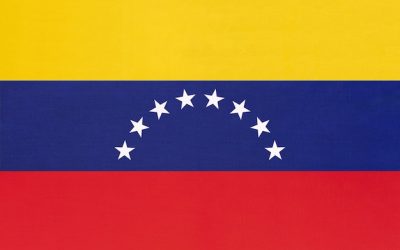
Easy answers to environmental questions are rare, but a new policy approach called ALUS, short for “Alternate Land Use Services,” could improve our dismal track record by allowing farmers and ranchers to take control of decisions that affect their lands. Despite our smug boasting about environmental purity, Canada is the only industrialized country in the world without such a program. That’s about to change.
ALUS is now official policy with the Canadian Federation of Agriculture and many of its affiliates, including Manitoba’s Keystone Agricultural Producers, the Agricultural Producers Association of Saskatchewan and Alberta’s Wild Rose Agricultural Producers. ALUS took a huge step forward on July 8, 2005, when Canada’s Ministers of Agriculture at their annual meeting in Kananaskis gave a green light to the development of an ecological policy framework based on the concept and to pilot projects to test it.
What is ALUS? It proposes that a new “crop” called “environmental goods and services” be added to the list of products like food and fibre already produced on Canada’s farms, and that growers be provided with incentives to produce, manage, and enhance public environmental resources on their property.
We can have a thriving economy and a high quality environment; indeed, being rich is almost a prerequisite for environmental progress. But most environmental policy questions pose difficult tradeoffs. One of the most intractable conundrums relates to environmental management on Canada’s vast, privately owned agricultural landscape.
Conservation issues on privately owned farm and ranch lands are fundamentally different from all others. Dealing with a single site industrial plant, say a paper mill or oil refinery, is easy. The industry describes its plans, submits an environmental impact assessment to a public agency, a hearing is held and regulations are issued. The company then designs the appropriate emission controls. Simple.
Contrast this with the 50 million hectares that are privately owned or controlled in Canada’s agriculture regions. Ownership is vested in thousands of private landowners, usually farmers. Each operation has different inputs, outputs and a unique product mix that depend on each farmer’s specific goals. Overlaid on top is something we call “the public interest.”
The legitimacy of the public interest on the farmed landscape relates to property rights. Each farm is a mishmash of public and private ownership. The farmer owns the land, the crops, the trees and the livestock. But on that same land, resources such as wildlife, water and any fish in it are in public ownership. Even if a public body has allocated rights to an entity to use a public resource, such as water through a water rights licence, there is no question that the Crown retains ownership.
The public at large has a legitimate interest in the conservation and management of public resources. The loss of wetlands, woodlands and river bank habitats are a broad social concern. Wetlands purify water, recharge wells, slow down runoff and reduce flooding. Perhaps the floods of 2005 would not have been quite so bad if we had a publicly funded wetland restoration and small dams program to encourage farmers to hold water on their lands.
Problems arise when the public interest conflicts with the private interests of the thousands of private farmers and ranchers. To further complicate matters, both the marketplace and public policies keep telling farmers to maximize production. Farmers have delivered to Canadians the cheapest and most high quality food in the world. It’s no exaggeration to say that the flow of high quality, inexpensive food is one of the best social programs in Canada; even poor people can eat well.
But now, in addition to demanding inexpensive food, Canadians are demanding that farmers provide an environmental “crop” as well.
Take water, that most fundamental of resources. Public water flows over or beside private land and agricultural activities affect its quality. The first, simple and wrong solution is to write laws and regulations designed to control traditional farming practices. While the paradigm of “command and control” may work for hog barns, which are just single-site industrial enterprises anyway, the regulatory approach imposes unfair obligations on traditional farmers. It breaks society’s implicit bargain with farmers to produce lots of cheap food for the country.
Then there’s the little matter of property rights. The heavy hand of government regulation that breaks the contract with private farmers, like the new and detested federal Species at Risk Act, represents the legalized theft of property rights without compensation. Farmers have a fierce attachment to their land and the memories of oppressive European governments are still fresh in the folklore of Canadian agrarian society. Freedom is still a good word in farm country.
That’s where ALUS comes in. Farmers realize that the environmental demands of society are here to stay. ”Alternate Land Use Services” provide a means for them to be compensated for altering their behaviour to place ecological values in the mix. If farmers preserve a wetland or other habitats, if they alter their mix of farm chemicals and tillage to reduce runoff pollution, in short, if they act as responsible stewards, the policy provides a means of paying them for that positive effort.
Europe and the United States spend billions on landscape conservation, three to four billion dollars a year in the U.S. alone. It’s time for us to catch up.



